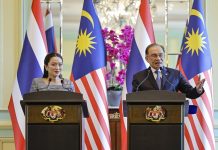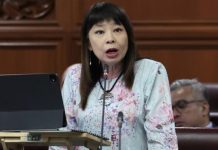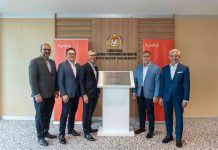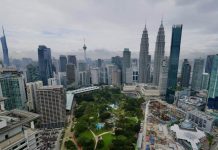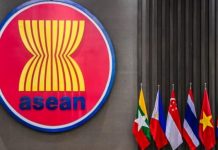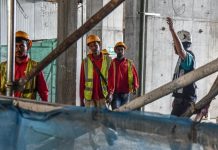Economic observers believe it will take more than just overcoming the Covid-19 threat in the country to restore consumer and investor confidence. They predict that it will only see a resurgence if the government can roll out a sustainable post-Covid-19 economic plan to help businesses hit hard by the global pandemic.
Professor Yeah Kim Leng, who is a director of the Economic Studies Programme at the Jeffrey Cheah Institute on South-east Asia, said that it will require the “synergistic effect” of government, businesses and household spending to reinvigorate confidence in Malaysia’s economy. “This (consumer and investor confidence) will likely happen when we are able to get on top of the virus. While there are still cases in the country, there is the potential of re-imposition of restrictions. That has a bearing on consumer confidence.
“The second factor is how fast companies can restore their balance sheet and improve their financial positions. The combination of government spending, businesses recovering and household confidence (in purchasing non-essential items) will create a synergistic effect. “Otherwise, without all three major forces, spending will remain muted and if that remains muted, economic recovery will face a constraint,” said Yeah. He elaborated that it is highly critical for the government to quickly roll out a spending plan that will help sustain private investor confidence, that the economic contraction in the second and third quarter is likely shallow and temporary.
Yeah also added that as long as businesses continue to hunker down, it will be difficult for consumer confidence to return. Furthermore, the current economic uncertainty where businesses across multiple sectors had to shut down and let go of their staff, coupled with salary cuts across the board has forced many Malaysians to be cautious and tight-fisted with their spending. He foresees positive growth occurring in the fourth quarter at the earliest or next year due to the collapse of external demand which will see a sharp decline in the export sector which cannot be offset by domestic demand.
Singapore Institute of International Affairs senior fellow Oh Ei Sun said Putrajaya needs to recalibrate its economic plans as soon as possible to put cold, hard cash into the pockets of everyday Malaysians. He said that the current Bantuan Prihatin Nasional (BPN) stimulus package can only tide over the B40 income group for the next few months and then they will be left bereft of income again. “In the longer term, absent a spiking recovery and therefore rapid job growth, there has to be a radical rethink of our national economic model, at least to the extent that it should enable people to be self-sufficient in their livelihoods,” said Oh.
He suggested that this would involve a more conducive environment with fewer red-tape for entrepreneurs and start-ups, revitalising Felda and Felcra with an emphasis on modern subsistence farming, niche farming in the rural areas and resurrecting the “one kampung, one product” policy among others. This will allow those who have lost their jobs or youths entering the job market to find gainful work and create a few jobs for others with similar interests instead of just waiting for jobs to be created for them.
“New government stimulus measures should tailor to these needs such as targeted tax cuts, incentives and loans. Policies in land use and labour must also be reformed to suit these new, more flexible needs. “Critical infrastructures such as telecom and information technology, transport and logistics must be further improved by the government and major industry players to truly enable electronic commerce and ‘work from home.’ “Only then can people subsist more sustainably for the foreseeable future,” added Oh.
He also noted that Putrajaya’s eagerness to open some segments of the economy has led to a confusing conditional movement control order (CMCO). This shows the government was ill prepared and did not make good use of the movement control order (MCO) period to plan for various eventualities. The analyst also pointed out the current stimulus package is also “sorely inadequate” to enable SMEs and M40s to sustain their businesses or make payments. “For example, why should employers and not Socso which employers contribute to pay the medical costs if employees are infected with Covid-19 after businesses reopen?” asked Oh.
Touching on investment or spending opportunities in a bearish economy, both experts shared the same view that the only ones who will be able to take advantage of the situation will be the T20 group or the upper M40 class. Yeah explained that while the B40 will most likely maintain their level of spending as they never had much to begin with, they will focus almost only on necessary items. He sees a rise in savings for many in the M40 and T20 income category as they will be wary of any lavish spending. “After due diligence, T20 with excess cash typically snaps up properties and businesses which are on fire sale after disasters, and I think this round is no exception,” said Oh. “M40 will count themselves lucky if they can somehow survive this disastrous round, what more snap up properties.”




